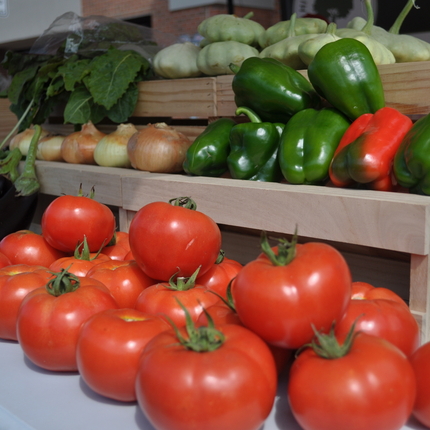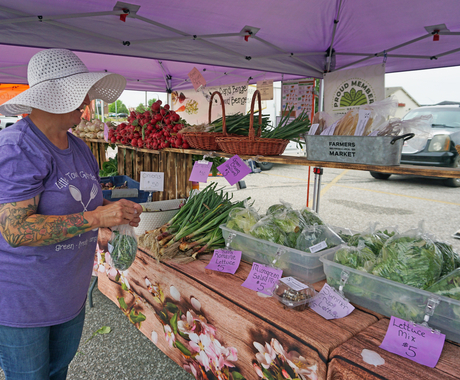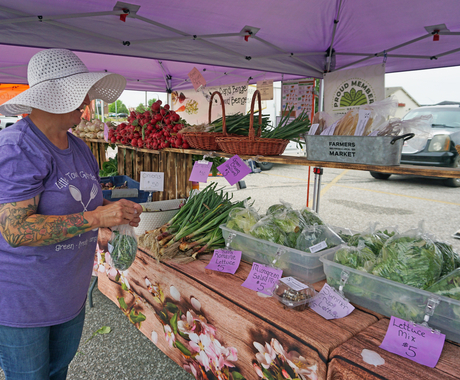Teresa Hoffman, policy communications associate, teresah@cfra.org, 402.687.2100 ext. 1012; or Rhea Landholm, brand marketing and communications manager, rheal@cfra.org, 402.687.2100 ext. 1025
LYONS, NEBRASKA – Across the country, states have been increasingly innovative in finding ways to integrate the goals of eliminating hunger and strengthening local food systems, according to a white paper released today by the Center for Rural Affairs.
“Hunger and the Local Economy: Integrated State-Level Approaches to Food Access,” authored by Nathan Beacom, senior policy associate for the Center, explores the role of local grocery stores, gives examples of state policies designed to make food more accessible, and offers recommendations to lawmakers on ways to address the broader causes of food access and food insecurity in rural areas.
“Food access policy can also be an economic development policy; these goals work hand in hand,” Beacom said. “A strong local food system means more employment, better jobs, a stronger economy, and more access. This kind of win-win policy addresses the immediate needs, as well as the underlying causes of food insecurity.”
The paper’s release comes as the Nebraska Legislature prepares for second-round debate on Legislative Bill (LB) 108, which could come as early as tomorrow, Wednesday, April 28. The bill, introduced by Sen. John McCollister, seeks to fix a flaw known as the “cliff effect” in the Supplemental Nutrition Assistance Program (SNAP).
“More and more we find that when a SNAP recipient gets a raise at work, that increased income is not enough to offset their loss in SNAP benefits,” Beacom said. “LB 108 allows people to taper off their benefits until they make enough to replace them.. This bill is especially important to rural communities, where food insecurity is higher than urban areas, and where grocers and farmers markets rely on SNAP income.”
Two other bills addressing improvements to the state’s food system are also being debated this session.
LB 324 would provide small meat lockers with resources to grow their businesses and make it easier for people to get meat directly from a farmer, and LB 396 would establish a statewide network to support the growth of farm to school programs. Both bills were introduced by Sen. Tom Brandt.
Click here to read the full white paper.




